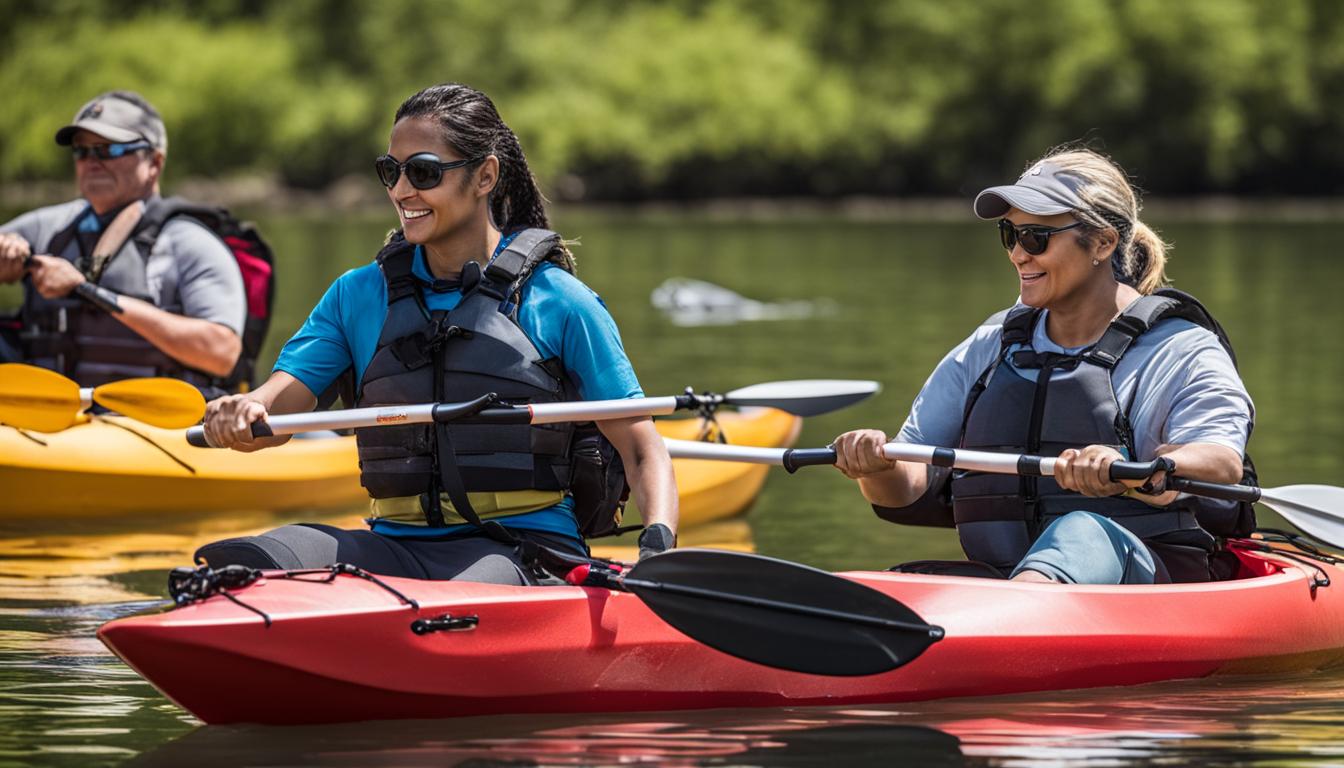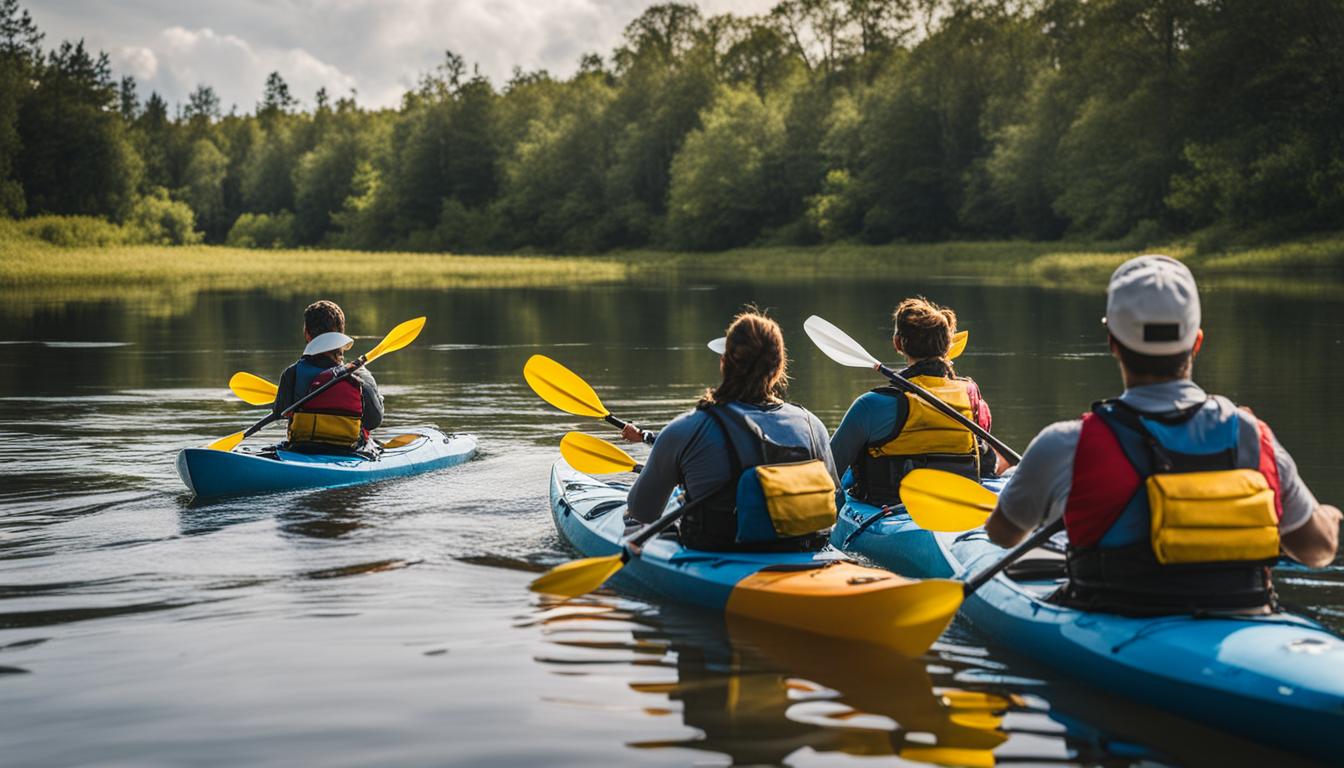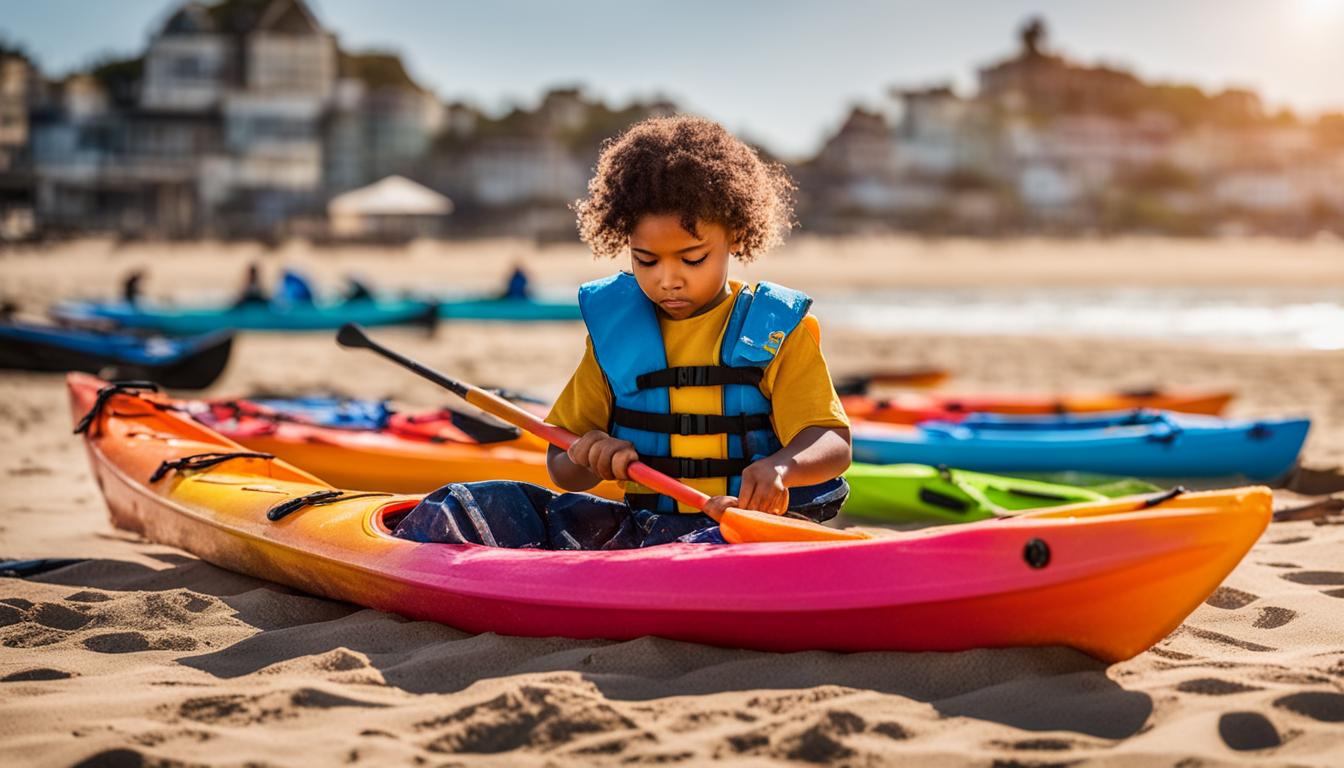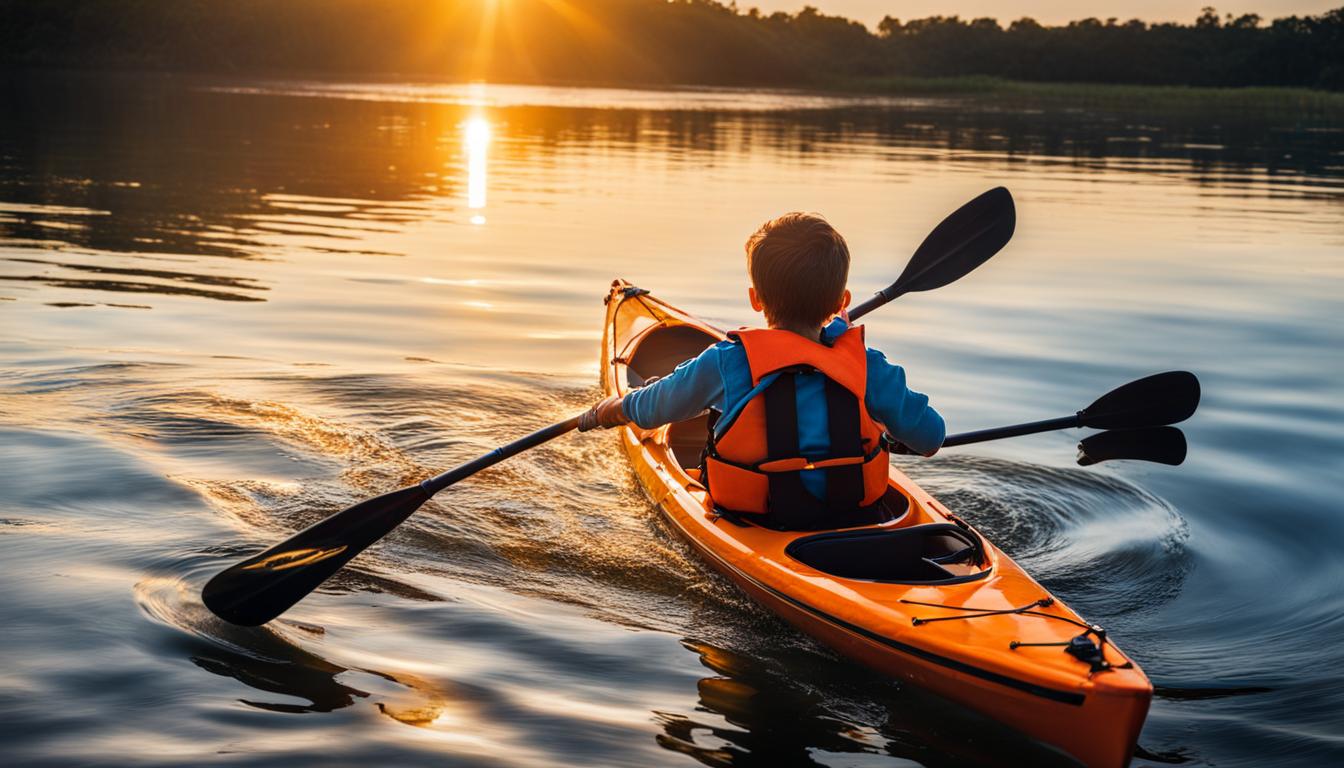Are you someone with a disability who has always wanted to experience the thrill of kayaking? Or perhaps you know someone who could benefit from the therapeutic aspects of being out on the water? Look no further! Adaptive kayaking clubs are here to make your dreams a reality.
These clubs cater to individuals with a wide range of physical disabilities, including spinal cord injuries, paralysis, balance and coordination problems, arthritis, traumatic brain injuries, cognitive and intellectual disabilities, autism spectrum disorder, and more. They are dedicated to fostering independence and inclusivity, ensuring that individuals of all abilities can participate in kayaking activities.
Adaptive kayaking programs and clubs across the country are equipped with specialized gear to enhance the independence of individuals with disabilities and provide them with access to the water. From adaptive equipment to personalized training, these clubs have everything you need to embark on your kayaking journey.
Joining an adaptive kayaking club not only allows you to engage in physical activity but also provides you with a supportive and inclusive community. You can develop new skills, enhance your overall well-being, and enjoy the recreational benefits of kayaking. It’s a chance to experience the joys of being out on the water and connect with others who share your passion.
Key Takeaways
- Adaptive kayaking clubs offer specialized equipment for individuals with disabilities.
- These clubs cater to a wide range of physical disabilities, making kayaking accessible for all.
- Participating in adaptive kayaking programs can provide therapeutic benefits and enhance overall well-being.
- Joining an adaptive kayaking club provides an opportunity to engage in physical activity and develop new skills.
- Adaptive kayaking clubs foster a supportive and inclusive community.
The Impact of Adaptive Kayaking Clubs
Adaptive kayaking clubs have a profound impact on the lives of individuals with disabilities. These clubs provide a supportive and inclusive community where individuals can engage in physical activity, develop new skills, and enhance their overall well-being. The programs offered by these clubs help individuals with disabilities experience the joys and benefits of kayaking, including opportunities for physical therapy, stress relief, and recreational enjoyment. Through adaptive kayaking training programs, participants gain the skills and confidence needed to navigate the water safely and independently.
Additionally, these clubs often organize accessible kayaking trips and community events, allowing individuals to connect with others and form valuable friendships. The therapeutic aspects of kayaking can be particularly beneficial for individuals with physical disabilities, providing them with a sense of freedom, empowerment, and increased self-esteem.
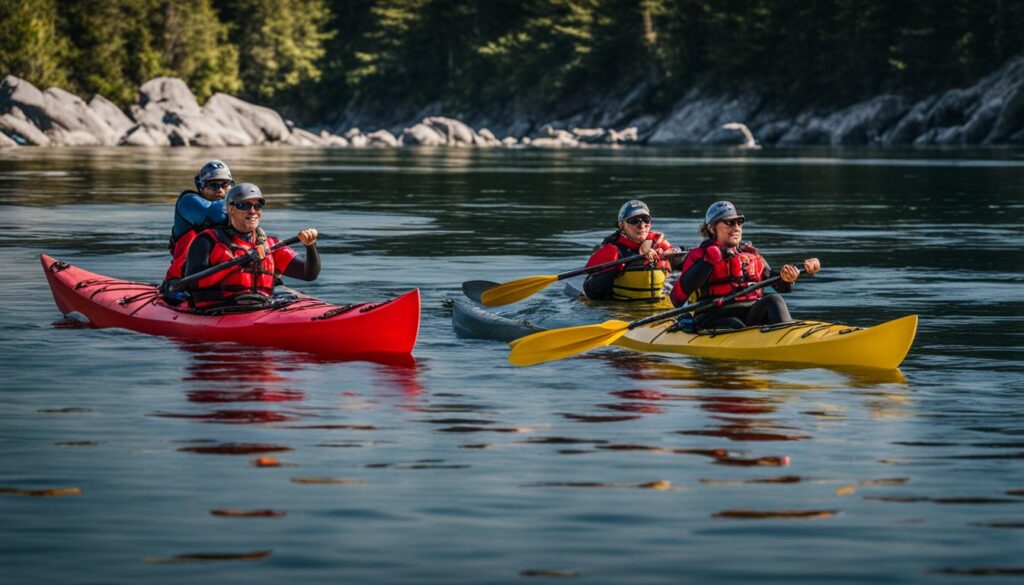
Table: Benefits of Adaptive Kayaking Clubs
| Benefit | Description |
|---|---|
| Physical Therapy | Kayaking can serve as a form of physical therapy, helping individuals improve their motor skills, core strength, and overall physical fitness. |
| Stress Relief | Spending time on the water and engaging in physical activity can provide a sense of relaxation and stress relief. |
| Recreational Enjoyment | Adaptive kayaking allows individuals to participate in a fun and enjoyable recreational activity, fostering a sense of happiness and fulfillment. |
| Community Engagement | By joining adaptive kayaking clubs, individuals have the opportunity to connect with others who share similar interests and experiences, forming meaningful friendships and support networks. |
| Increased Self-Esteem | Mastering the skills required for kayaking and achieving personal goals can boost self-confidence and improve self-esteem. |
Overall, adaptive kayaking clubs play a vital role in promoting inclusivity and empowerment for individuals with disabilities. Through these programs, individuals can overcome physical barriers, develop new skills, and enjoy the numerous benefits of recreational kayaking.
Inclusive Kayaking in France: A Model for Success
France has established itself as a leader in inclusive sports, with kayaking being one of the prime examples. Since the 1990s, kayaking in France has embraced inclusivity by offering adaptive sports programs for individuals with disabilities. The French government has taken proactive steps to support and promote the development of inclusive sports, making France a model for other countries.
The success of the inclusive kayaking program in France can be attributed to several key factors. One of these is a strong focus on technical adaptations, ensuring that individuals with disabilities can participate fully in the sport. Collaborations with the medical community have also been instrumental in providing the necessary expertise and guidance for creating adaptive sports programs.
The French government’s commitment to the training of club sport instructors has also played a significant role in the success of inclusive kayaking. By investing in the development of instructors who are knowledgeable about adaptive sports, France has been able to provide high-quality coaching and support to individuals with disabilities.
While there are challenges to increasing the participation of individuals with disabilities in sports, France has made significant strides in overcoming these obstacles. By making sports inclusive in schools, improving accessibility, and fostering communication about successful experiences, France has created an environment where individuals of all abilities can thrive in the world of kayaking and other sports.
FAQ
What is adaptive kayaking?
Adaptive kayaking refers to the use of specialized equipment and techniques to make kayaking accessible for individuals with physical disabilities.
What disabilities can participate in adaptive kayaking programs?
Adaptive kayaking programs cater to a wide range of physical disabilities, including spinal cord injuries, paralysis, balance and coordination problems, arthritis, traumatic brain injuries, cognitive and intellectual disabilities, and autism spectrum disorder, among others.
What do adaptive kayaking clubs offer?
Adaptive kayaking clubs provide training, adaptive equipment, and opportunities for therapeutic kayaking experiences, making kayaking accessible for all individuals with disabilities.
How do adaptive kayaking clubs impact the lives of individuals with disabilities?
Adaptive kayaking clubs provide a supportive and inclusive community where individuals can engage in physical activity, develop new skills, and enhance their overall well-being.
What are the benefits of adaptive kayaking?
Adaptive kayaking offers opportunities for physical therapy, stress relief, recreational enjoyment, and can contribute to increased self-esteem and a sense of freedom and empowerment.
How has France promoted inclusive kayaking?
The French government has played a significant role in promoting inclusive sports, including kayaking, by offering incentives, support, and financial schemes for the development of these activities. They focus on technical adaptations, collaboration with the medical community, and training club sport instructors.
What are the challenges to increasing participation in inclusive sports?
Challenges include perceptions of risk and lack of accessibility. To overcome these challenges, it is essential to make sports inclusive in schools, improve links between disability-friendly structures and clubs, and communicate successful experiences.
Can the inclusive kayaking program in France serve as a model for other countries?
Yes, the success of the inclusive kayaking program in France can serve as a model for other countries looking to develop inclusive sports programs for individuals with disabilities.

